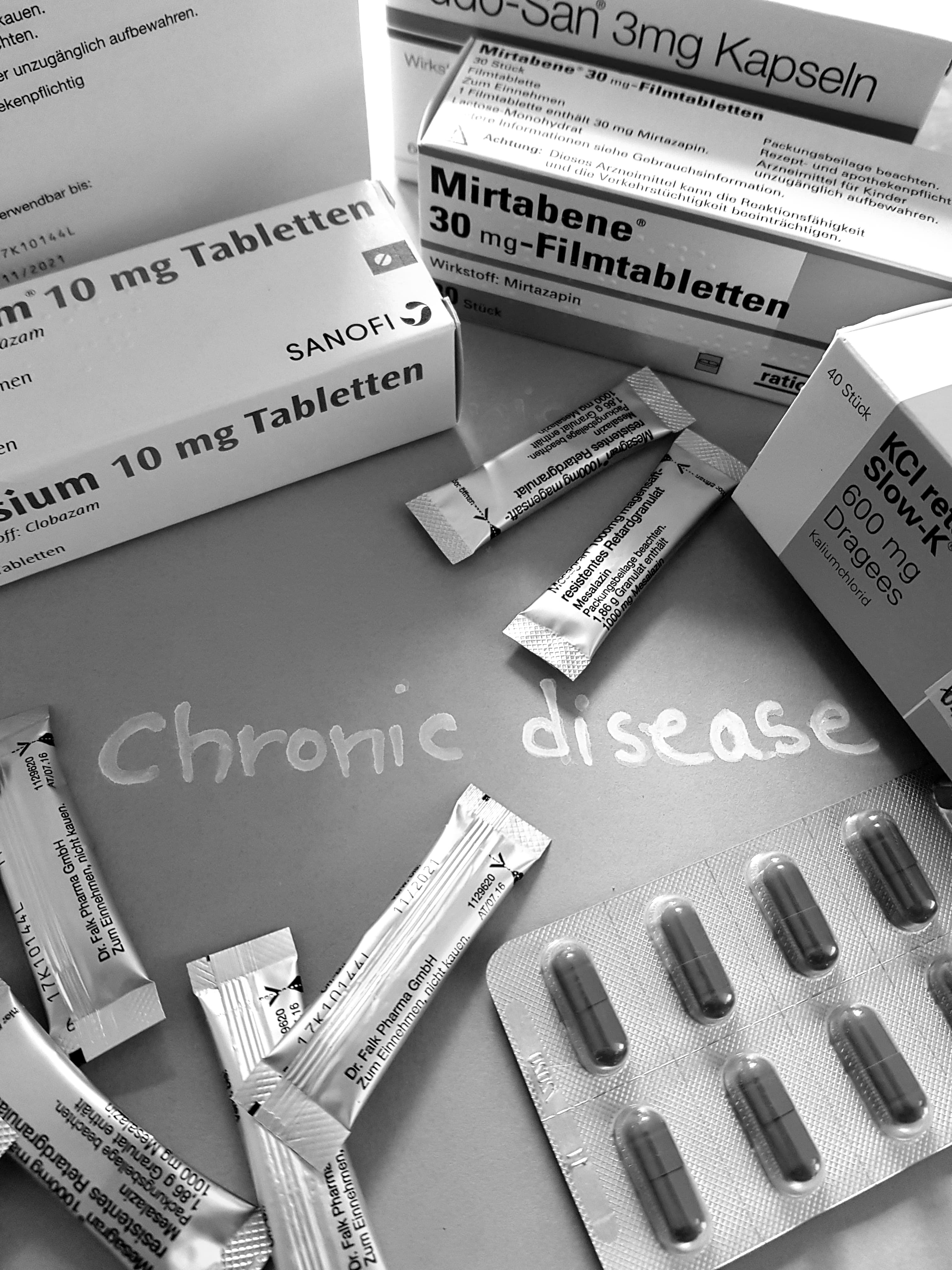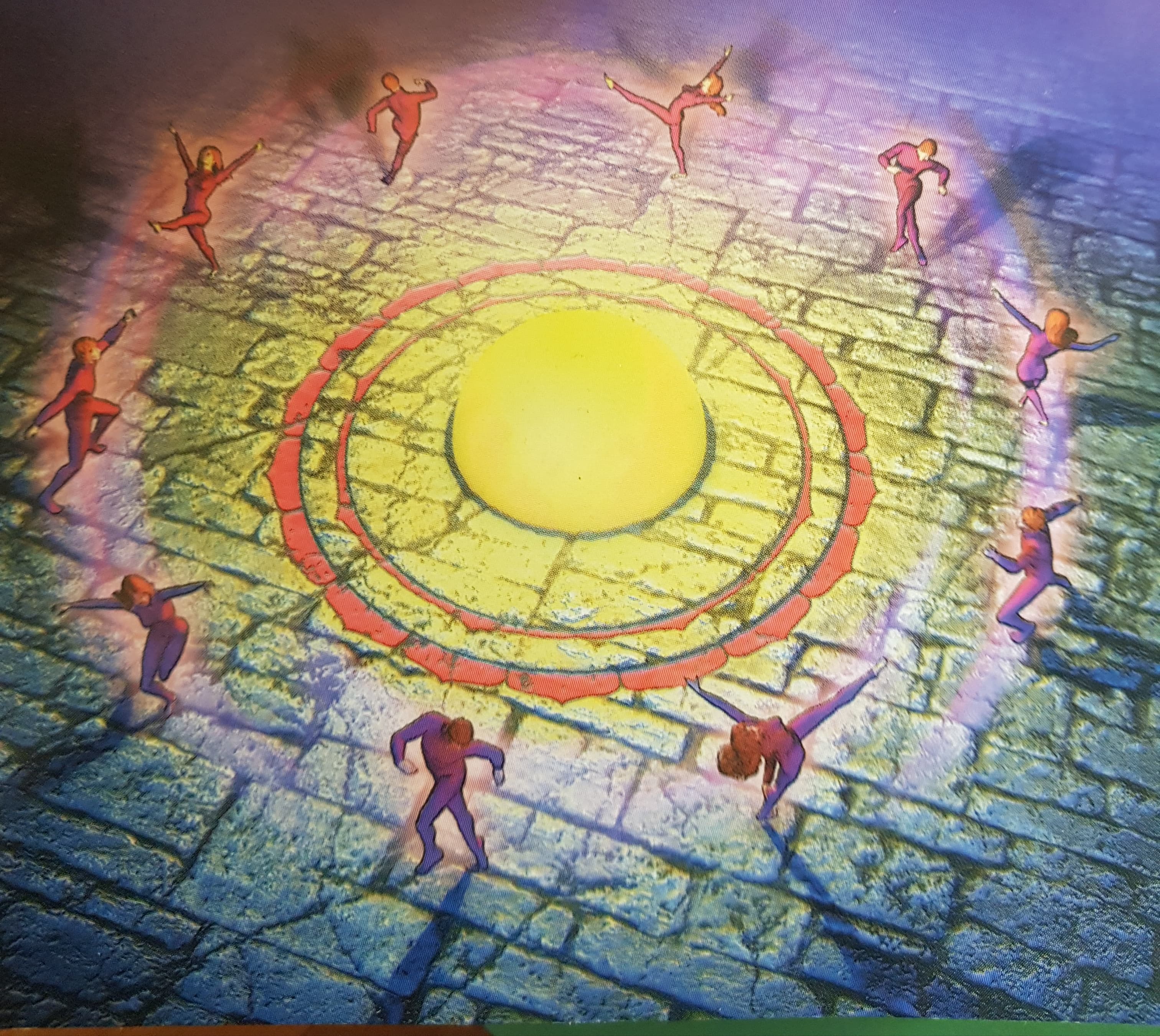https://cdn.steemitimages.com/DQmRuPMRRYWrx1srp9gMv8edtDPgcGKzvQyZUveRUprKfuG/59643297_444518736351639_6878402906366672896_n.jpg
*Meeting with the diagnosis* I'm not sure how to begin at all. What should be my first sentence? I was asking myself the same when I left the clinic with a diagnosis of chronic illness. How to tell my family, to my friends? How to deal with all the comments? People telling me, that it's only transient, that I need to take pills and with time will all be better. That triggered a wave of new senses. You are blaming yourself in the process of shock, defense, guilt, and of course self-pity, and with time anger, sorrow, feeling of helplessness and anxiety, especially when you come to the realization that you can't live anymore like you are up to now. Transient depressive conditions can occur when we meet with doctors and we find that our situation has not changed or is even worse. When a person is confronted with a chronic illness, he is not only dealing with the weakened body and physical pain, but also with the social and psychological consequences, with many uncertainties and fears that are connected with present, future and with a changed attitude towards themselves and also with changed attitudes to others, to work, to the world. These consequences are sometimes even more burdensome than physical pain itself. A lot of chronic patients live a long time as patients, sometimes all their lives. It is not only a temporary role but for some people is a permanent lifestyle who has to live in a healthy world, where health is a moral and social norm.

Chronic diseases are long-standing, usually slow-moving diseases. Due to the prolongation of the expected life expectancy, they are more and more frequent. With the adjective "chronic" we describe a characteristic that develops slowly and lasts for a long time, and with the term "chronic illness", any disease that lasts for a certain period and usually doesn't stop but its course can change. Needs of patients with chronic diseases are partially different from the needs of healthy people. - get acquainted with diagnosis and prognosis - learning about the disease - education on anticipated therapy or rehabilitation - dealing with pain - support from friends, friends, colleagues ... - the need for peace - good relations and understanding by doctors - non-burdening with various "bureaucratic" procedures by the health system - physical and mental recreation - fast and complete recovery *Dealing* Patients use different mechanisms for coping and controlling diseases. These mechanisms can be rational (way of thinking) or behaviors (way of behaving). Another important difference is between the emotional and the problematic way of confrontation. The first way is to try to minimize the emotional effects of the disease, while the other is to try to overcome the problems with actions. All these strategies are better than putting everything on to fate, which is unproductive. Also, the strategy of hiding the disease from others turns out to be very problematic, as it actually intensifies the difference between the patient and healthy people. The patients can have various forms of chronic disease recovery: • adaptation - accepting illness and changing daily life and work accordingly with that. Person accepts a disease in his life, that changes the ways of its social participation in a healthy world • Secondary acquisition - refers to the positive qualities that the patient pulls out of a confrontation with his illness. Accepting disease and restrictions • Active denial - not accepting illness or trying to overcome it by ignoring it as much as possible. The patient seeks to live actively in normal life and minimize the consequences of the disease. He doesn't dedicate attention to the disease • resignation or giving up - means a sense of defeat. In this case, an individual feels illness as a devastating fact of his life, because it means so much loss of life experiences and opportunities *Conclusion* How we manage the disease depends on how we handle the crisis in general. In controlling the disease, we may find powers that we didn't even know we had. While a chronic illness closes the door in some parts of our lives, it opens them in others. The skills that make us feel that the disease is controlled, are dependent on each individual. Some of it with learning about a disease, others with work, finding new activities and new hobbies... We need to learn a lot about our further personal growth. It is important to accept physical changes (side effects of treatment), to obtain a new sense of conformity with yourself (satisfaction with yourself). We need to learn how to express our feelings - humor, faith, and hope are important. It’s also important to find activities and jobs that are pleasant to us, distract us and give us a sense of useful time (manual work, household). For further life, it is very important that we understand that our life still has meaning despite a chronic illness. We have to understand that personal growth is difficult, but the path is important. The last phase is followed when the disease is accepted, and we accept that we need to start living differently. Then you start searching for all sorts of solutions. Don't worry, all these reactions are completely normal. Fighting with the chronical disease is not easy but never give up. Time will tell. Think positive, and that’s important! Guys thank you for reading and till next time ;)

With love, @tinabrezpike

Originally posted here: https://steemit.com/health/@tinabrezpike/coping-with-a-diagnosis-of-chronic-disease


No comments:
Post a Comment